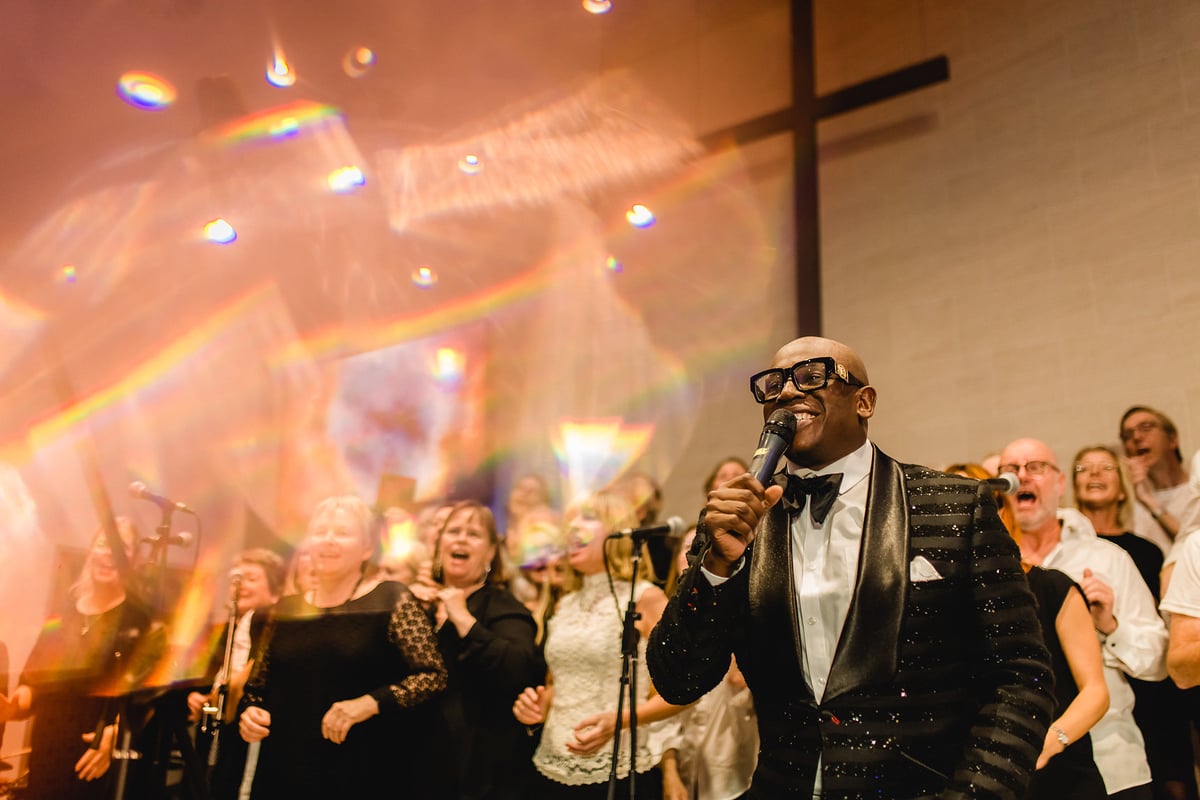America’s Last Chance at a Gospel Archive

This is a fascinating Longread from Oxford American, on Baylor University’s Robert Darden’s efforts to create a comprehensive archive (physical and digital) of American gospel music:
In 2001, when Darden set out to write the first comprehensive history of black gospel music, from its African origins into the twenty-first century, he came across citations to many fundamental songs—early recordings by the Staple Singers; “There Is Not a Friend Like Jesus” by the Roberta Martin Singers; “Peace in the Valley” by the Southern Sons— but found that the recordings were long gone, never to be heard again. So he sought what could be salvaged. In Chicago, he climbed to the top floor of a tenement building, where he listened in awe as a woman sang lines to old freedom songs. In Memphis, he swayed and clapped in the pews of Al Green’s church. But when he finished People Get Ready!: A New History of Black Gospel Music in 2004, having painstakingly laid out the history of the genre, he almost couldn’t bear that many of its core components were lost to us.
After Darden finished the book, he got in touch with some of his old contacts from Billboard, gospel scholars and collectors like Bob Marovich, Opal Nations, and Ray Funk. He wanted to determine how much of black gospel music from its golden age was lost or unavailable. They estimated seventy-five percent.
Ask them why, and the answer gets complicated. “Part of it is racism,” Darden says. “Part of it is economic.” Part of it has to do with the consolidation in the music industry (some record companies hold the copyrights to these songs, but, lacking financial incentive, don’t make them available in any form). And the last part, as he sees it, is the religious aspect of this music. Marovich put it to me this way: “When I was growing up, there was always, in our neighborhood, a couple of guys in white shirts and black ties that wanted to talk to you about Jesus. And you wanted to run the opposite direction from those guys… . Gospel is a little frightening to the unknowledgeable.”
In February of 2005, Darden wrote an op-ed in the New York Times lamenting the loss of these treasures from gospel’s golden age: “It would be more than a cultural disaster to forever lose this music,” he writes. “It would be a sin.” The apparent imbalance of that remark stuck with me. By any honest standard, we sin regularly. A cultural disaster seems like a much more grievous affair. But I also had the feeling that he was onto something—that the loss of this music was a moral failing born out of a history of oppression and neglect. He explained to me that when he wrote that, he had in mind Jim Wallis’s (at the time controversial) claim that racism was America’s original sin.
One of the songs referenced in the article as the archival project’s unofficial anthem is “Old Ship of Zion,” recorded by The Mighty Wonders. I found it on YouTube:
There’s a beauty to these recordings that belies their historical importance. John Lewis has said that “without music the civil rights movement would have been like a bird without wings.” Some antebellum spirituals are said to have held instructions for slaves to escape. You can also find the roots of almost every major American popular music in the various strands of gospel, from country to hip-hop. It would be very American to lose these strands, but it’s the better kind of American to bring our collective resources and technology to bear to save and recirculate these records for the public good.





Stay Connected